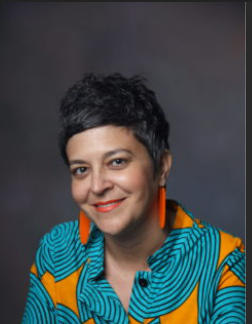Researcher of the Month: Dr Inês Cordeiro Dias

Please introduce yourself and tell us a little about your ‘research journey’. How did you get to where you are right now?
I am a lecturer at the University of Leeds since 2020, working at the School of Languages, Cultures and Societies in Spanish, Portuguese and Latin American Studies. My research focuses on Angola, Mozambique, Brazil and Portugal, and I am very interested in the south-to-south relations between Brazil and these two African countries. My interest in African Portuguese-speaking countries comes from an early age, as I grew up listening to my father tell me stories from when he was a soldier in the colonial war in Guinea-Bissau. In Portugal, while at the University, I realized that Portuguese colonial History only told one side of the story and that led me to want to understand what was behind the colonial discourses I grew up with. I was also a Camões Institute Lecturer at the University of Puerto Rico (2006-2011), a US territory, where I learned in a very practical way about what it meant to live in a colonised space.
Who, or what, sparked your interest to work on your particular research area?
I have always been very interested in cinema. Before I began my PhD, I learned that Mozambique became the first African country to be completely independent in producing films, so I was very interested in understanding why the first Mozambican government invested so much in its film industry. I wanted to explore the political use of cinema in the 1960s and 1970s in Mozambique and compare it with other Portuguese-speaking countries during this period, as all of them were going through important political transitions between dictatorships and democracies. This was the subject of my PhD dissertation and of the book I am currently finishing
What are you currently working on, and why do you think it’s important?
My future research project looks at contemporary urban spaces in these four countries (Mozambique, Angola, Brazil and Portugal), and how Lusophone artists of the 21st century discuss the tensions between centre and peripheries in their art. I am particularly interested in the works of lesser-known artists, many of them quite young and from peripheral neighbourhoods, and how they relate to the urban spaces they inhabit. I am also interested in other forms of urban popular culture, such as Angolan Kuduro, a type of Afro-house music very popular in the streets of Luanda (the capital city of Angola). Kuduro appeared in the 1990s in the musseques of Luanda and became extremely popular not only in Angola, but in other Lusophone countries. Many of its dance movements mimic the traumas of the civil war, functioning as a collective healing process of the wounds of that period. Young kuduro dancers claim the streets of Luanda with their dance moves, stopping traffic, climbing to buildings, and gathering passers-by to watch and participate in their dance circles.
How does your research contribute to current debates in African (and African diaspora) studies as an interdisciplinary field?
My current work is transnational and interdisciplinary, as I am looking not only at film, but also at music, dance, photography, and performance and how these artistic forms deal with social issues, with politics and even with the building of nationhood. I think one of my major contributions to the field is to investigate these transnational dialogues, as usually studies tend to concentrate in a singular country, despite the fact that many of these artists travel through the Lusophone artistic space exchanging ideas and presenting their art. I am particularly interested in the dialogues between Angola, Mozambique, and Brazil, and how these dialogues happen away from Portugal and from other Western countries. I also hope that my work will give more visibility to Mozambican and Angolan young artists outside of their countries, as unfortunately Mozambique and Angola are still peripheralized in the art world, including in the African context.
